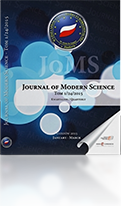Prawo pomocy w postępowaniu w sprawach cywilnych w Polsce i Hiszpanii. Zadanie państwa z zakresu wymiaru sprawiedliwości czy administracji?
The right to legal aid in civil litigation in Poland and in Spain. Is it the state’s task relating to justice or administration?
Author(s): Joanna Misztal-KoneckaSubject(s): Civil Law, Sociology
Published by: Wydawnictwo Akademii Nauk Stosowanych WSGE im. A. De Gasperi w Józefowie
Keywords: legal aid; civil litigation; justice; legal representative ex officio; exempting from court costs
Summary/Abstract: The article presents the right to legal aid in civil litigation in Poland and in Spain. The analysis proves that overburdening Polish courts (judges and court referendaries) with duties related to considering applications for appointing a legal representative for the purpose of litigation ex officio and exempting from court costs as well as granting the right to legal aid in cross-border disputes cannot be justified by ensuring effective access to justice for indigent subjects. Decisions made on these issues do not count as the administration of justice, and only the said administration is restricted to courts. What is more, court instruments to verify the truthfulness of statements which provide a basis for granting exemption from court costs or appointment of a legal representative for the purpose of litigation ex officio are exceptionally inefficient. Granting the right to legal aid to parties by the state should rather be treated as an administrative case. Th e state has a specialised administrative apparatus which is prepared to support subjects that are incapable of overcoming difficult life situations by using their own powers, resources, and opportunities. Social workers could verify the correctness of the information concerning the financial status of the interested parties. Being aware of a petitioner’s situation, such clerks determine whether exemption is sought by an indigent person or whether this person can afford to cover court costs and remuneration of a professional legal representative for the purpose of litigation but prefers to pay for litigation from public funds.
Journal: Journal of Modern Science
- Issue Year: 41/2019
- Issue No: 2
- Page Range: 87-109
- Page Count: 22
- Language: Polish

